Transient rest restores functionality in exhausted CAR-T cells through epigenetic remodeling
- PMID: 33795428
- PMCID: PMC8049103
- DOI: 10.1126/science.aba1786
Transient rest restores functionality in exhausted CAR-T cells through epigenetic remodeling
Abstract
T cell exhaustion limits immune responses against cancer and is a major cause of resistance to chimeric antigen receptor (CAR)-T cell therapeutics. Using murine xenograft models and an in vitro model wherein tonic CAR signaling induces hallmark features of exhaustion, we tested the effect of transient cessation of receptor signaling, or rest, on the development and maintenance of exhaustion. Induction of rest through enforced down-regulation of the CAR protein using a drug-regulatable system or treatment with the multikinase inhibitor dasatinib resulted in the acquisition of a memory-like phenotype, global transcriptional and epigenetic reprogramming, and restored antitumor functionality in exhausted CAR-T cells. This work demonstrates that rest can enhance CAR-T cell efficacy by preventing or reversing exhaustion, and it challenges the notion that exhaustion is an epigenetically fixed state.
Copyright © 2021 The Authors, some rights reserved; exclusive licensee American Association for the Advancement of Science. No claim to original U.S. Government Works.
Figures
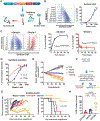

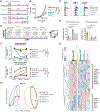
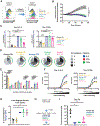
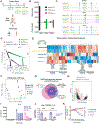
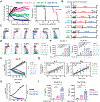
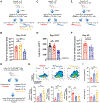
Comment in
-
CAR T cells need a pitstop to win the race.Cancer Cell. 2021 Jun 14;39(6):756-758. doi: 10.1016/j.ccell.2021.05.011. Cancer Cell. 2021. PMID: 34129822
References
-
- Majzner RG, Mackall CL, Clinical lessons learned from the first leg of the CAR T cell journey. Nat Med 25, 1341–1355 (2019). - PubMed
Publication types
MeSH terms
Substances
Grants and funding
LinkOut - more resources
Full Text Sources
Other Literature Sources
Molecular Biology Databases

